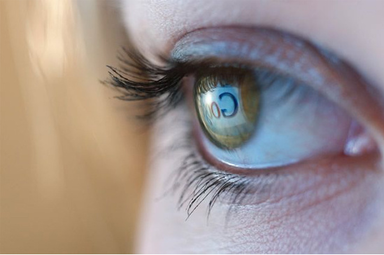Menu
Before the deluge: Spend your attention wisely |

Your attention is a valuable currency. Be judicious in how, when, where, and with whom you invest it.
It has become fashionable to beat up the press. It’s not like we don’t deserve it. (I’m taking the liberty of including myself and other bloggers as “press.”) For example, the prevalence of some outlets using the term “alt-right” to describe white racist Nazis is as evil as referring to acts of genocide as “ethnic cleansing.” (For more on the ill effects of such dangerous euphemisms, read David Harsanyi in The Federalist, November 22, 2016: “Dear media: Please stop normalizing the alt-right.”) Knock it off, media! Or better yet, knock off the media. As in stop patronizing broadcast and cable news programs. They share one unenviable trait with our Despot-elect: They crave our attention. It doesn’t matter if it’s negative or positive, attention translates into profit. When it comes to the bottom line, there is no distinction between factual reporting and “fake news.” Both generate an audience: they attract eyeballs for broadcasters, and they encourage the clicks and page views that are the currency of the online economy. Here's the Guardian’s take on the fake-news epidemic in an article posted today by Roy Greenslade, while John W. Whitehead of the Rutherford Institute claims in a November 21, 2016, article that the U.S. government is the biggest perpetrator of fake news. (I wrote about fake news on Facebook and elsewhere in both the October 4, 2016, and October 25, 2016, Weeklies.) The monetary value of attention is a lesson that no entities have put into practice as successfully as Google and Facebook, which you should also knock off using, or at least use sparingly. I’m not the only person recommending you give social media a rest. In a November 19, 2016, article on the New York Times, Cal Newport claims the use of Facebook, Twitter, LinkedIn, and other social sites is bad for your career. Newport writes that capitalist markets reward what is rare and valuable. Social media is the antithesis of rare and valuable: it is abundant and cheap. As you become more valuable in the marketplace, opportunities will find you, according to Newport. Based on the opportunities knocking on my door recently, I must be doing way, way too much social media-ing. But I digress. Put yourself on a personal-data diet The folks at the Mozilla Foundation, makers of the Firefox browser, have created a 10-question quiz intended to help you determine whether you share too much information with web services, advertisers, and other data-collecting entities. M.J. Kelly describes the quiz in a September 27, 2016, article on Mozilla’s Internet Citizen blog. When I took the quiz, the result was an image of the Portlandia couple in American Gothic pose. What does that mean? According to Mozilla, I’m the Sustainable Browser: “a well-connected community member with online relationships reaching far and wide.” Um, not quite. But I do appreciate two of the bits of advice the quiz results offered. The first is to use and support encryption. This is becoming increasingly important in light of a recent comment by the Despot-elect’s choice for director of the CIA, Mike Pompeo, that “[t]he use of strong encryption in personal communications may itself be a red flag.” The quote is taken from a firewalled January 3, 2016, article in the Wall Street Journal written by Pompeo and David B. Rivkin, Jr. In a November 19, 2016, article, Venture Beat’s Harrison Weber examines the concerns this and other early moves by the Dictator-in-Waiting have raised with privacy advocates. The second Mozilla suggestion is a handy tip for Gmail users who want to find out which sites are sharing their email addresses. Put a plus sign (+) and the name of the site you’re registering at just before the at sign (@), such as [email protected]. The mail will still arrive at the [email protected] address, and if you get spam to this address, you’ll know which company disclosed your address to the spammer. ------------------------------------------------------------------ A suggestion for how white people can help combat white racists There’s no getting around the fact that white racists are emboldened by the Presidential election results. The New Yorker’s Alexis Okeowo writes in a November 17, 2016, article about several racially motivated criminal acts against non-whites: from racist graffiti to outright physical attacks. Okeowo describes an effort by Daily News writer Shaun King and the open-source software company Ushahidi to publish a map of post-election acts of intimidation. My response to the rise of white racists is to redouble my efforts to make everyone feel welcome whenever and wherever I encounter them. That’s not nearly enough, I know. Hatred has to be stomped out early, before it has a chance to fester and grow. Several valuable suggestions for what white people can do to support the non-whites who are the targets of racial attacks come from BuzzFeed culture writer Hannah Giorgis in a November 22, 2016, article. Of Giorgis’s eight-plus-one suggestions, the two that stand out for me are to “[a]mplify the work and words of the most marginalized people,” and to have the “difficult conversation” with the racist white people you know, especially family members. Giorgis also recommends that white people intervene when they see harassment in progress, and that they get involved for the long haul by supporting anti-bigotry organizations (she links to a list of nationwide organizations and to another list of community-focused groups). Giorgis’s last suggestion is to “be patient, compassionate, and kind.” That’s about as timeless and valuable as advice gets. |
